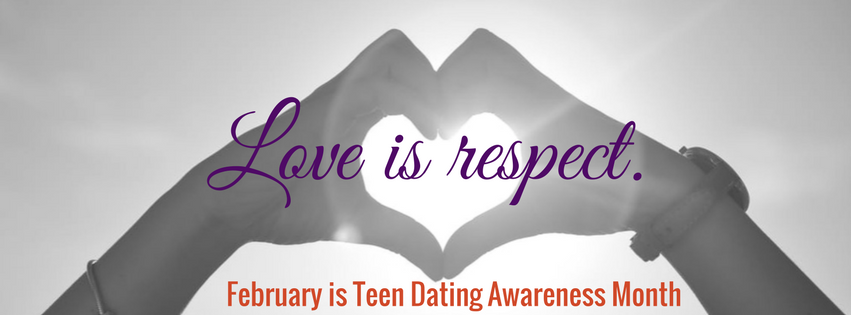

Teen Dating Violence Awareness Month
Teen Dating Violence Awareness Month
Irene Mackey, Development Intern
February is Teen Dating Violence Awareness Month! While we are eager to share the importance of this month, the prospect of teen dating violence is one that is all too real for many young people today. Unfortunately, if you are old enough to date, you are old enough to potentially suffer from domestic violence.
Dating at a young age can be a wonderfully awkward experience. Between the ages of 14-18 dating finally starts to feel tangible. Hopes are high that you will meet someone nice, smart, who you have a lot in common with. Dating is something that’s very important to many high school and college students, and we all dream of one day marrying our high school sweethearts. Realistically speaking, it doesn’t always end up this way. But looking back, most have fond memories of their younger days and relationships.
However, this isn’t true for everyone. In fact, according to The Bureau of Justice and Statistics, and Intimate Partner Violence in the United States (2004) “Girls and young women between the ages of 16 and 24 experience the highest rate of intimate partner violence, almost triple the national average”. These numbers are the very harsh reality. Violent behavioral issues often start as young as age 12, long before our brains have fully developed, but just a few years before we usually start dating. The University of California San Francisco reported that among students between the ages of 15-20 who reported at least one violent act during their dating relationship, 24% experienced extremely violent occurrences such as rape or the use of weapons against them.
Young men and women aren’t always equipped with the right resources and information to help themselves if they are in a violent relationship. It can be difficult to fully grasp that you might be in trouble, how to get out of the relationship, or who to talk to if you need advice. That’s where we come in, at the Prudence Crandall Center we offer resources that will help you to understand that you are not alone, that there are other alternatives, and that you are not a victim, you are a survivor. We have a 24-hour helpline that is there to help people just like you. If you are in need of speaking with someone, we have certified Domestic Violence Counselor available, as well as access to our confidential, emergency shelter. We are here to make you feel heard, and to make you feel safe again.